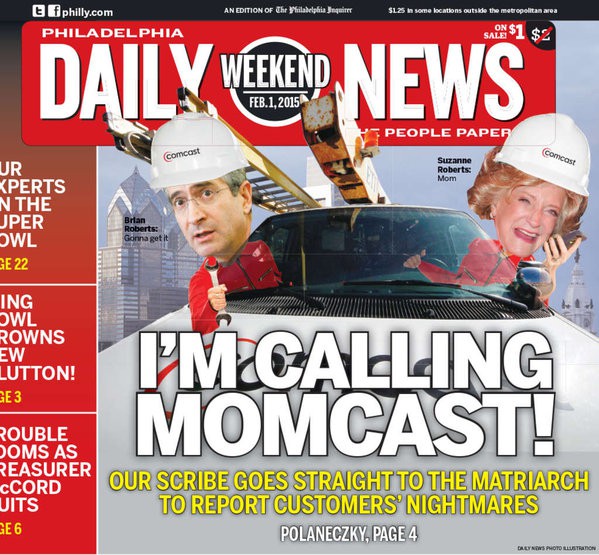
Image from the Philadelphia Daily News
Comcast customers in Philadelphia, home to Comcast’s world headquarters, get no better treatment from the cable company than anyone else. But customers in the city of Brotherly Love now at least have a small edge on the rest of America.
A Philadelphia Daily News columnist just so happens to have the direct phone number of Comcast CEO’s 92-year old mom and is willing to use it.
“I grew up in a neighborhood where even the really bad kids could be brought back in line when someone tattled on them to their moms,” wrote columnist Ronnie Polaneczky. “That’s why I picked up the phone and called the 92-year-old mother of Comcast Corporation’s chairman and CEO Brian Roberts. We all know that Roberts’ company has been very, very bad. Comcast is in the news every other day with another irate customer’s tale of horrible treatment from the behemoth cable provider.”
Polaneczky decided to use the nuclear option after reading an email sent by Diana and Jason Airoldi, recent Philly transplants from Washington, D.C. The Airoldi’s had an appointment with Comcast to install service Dec. 23. It was now Feb. 1 and after multiple broken promises they were still waiting.
“In almost the same amount of time it took Noah to float the Ark, the country’s biggest cable company and home Internet-service provider hasn’t been able to turn on the Internet and cable in the Airoldis humble South Street apartment,” the columnist noted.
But they were by no means alone. There were also sad stories from:
- Sandy and Charles Arnold, who have tried since Dec. 14 to get Comcast cable and Internet at their Ocean City home;
- Bridie Gallagher, a senior citizen who has tried for months to get the overcharge on her bill fixed;
- And Christine Yelovich, whose odyssey into the Comcast’s multiple circles of service hell should only be told with a horror-movie soundtrack playing behind it.
Answer: Call Mama
Suzanne Roberts, the 92-year old mother of Brian, accomplished more for the Airoldi family in one day than the entire Comcast juggernaut could manage in more than a month. By day’s end, the Comcast trucks descended on the neighborhood and the family was finally connected.
Unfortunately, Comcast does not offer 1-800-SUZANNE for beleaguered customers, who have developed a seething dislike for the cable company. One horror story after another, accompanied by news of PR disasters that routinely spread across the country faster than measles all testify to Comcast’s bottom of the barrel customer ranking as among the most hated companies in America.
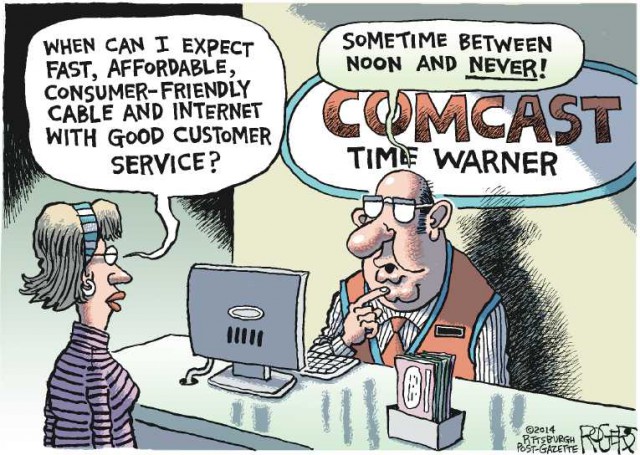 Even PR damage control marketing experts now consider Comcast hopeless.
Even PR damage control marketing experts now consider Comcast hopeless.
“The stories that come out about them are just unbelievable in terms of the torture – not just bad service, but torture – they inflict on customers,” said Chris Malone, managing partner of Fidelum Partners in Newtown Square, a specialist in fixing the reputations of companies that shoot themselves in the proverbial foot. “I feel quite confident that if their services were offered more broadly, their ranking would be much lower.”
Malone told Polaneczky the reason more Americans hate Comcast than BP — the company that threatened the Gulf of Mexico’s entire ecosystem after recklessly allowing more than 200 million gallons of oil to spill and stain the beaches from Louisiana to Florida — is the cable company’s relentless greed.
‘At the root of Comcast’s problem,’ Malone says, is that ‘the company is focused on maximizing financial benefits at the expense of its customers and employees,’ who know that “the company does not have their best interests in mind.”
Even Comcast’s new customer service czar, Charlie Herrin — head of “customer experience,” hired to “ensure that we are delighting our customers at each touch point,” has waved the white flag, seemingly admitting the company is an unmitigated mess.
Despite annual commitments from Comcast management starting in 2007 that Comcast was “redoubling” its efforts at improving customer service, the pesky fact that twice nothing is still nothing left Herrin sheepishly lowering expectations:
“In fact,” Herrin said, “it may take a few years before we can honestly say that a great customer experience is something we’re known for.”
A few years?

Polaneczky
These facts should be penetrating the offices of every state and federal regulator contemplating the public interest benefits of approving a merger deal between Comcast and Time Warner Cable. Sweeping aside the Comcast-ghostwritten letters non-profit, civil rights, and political groups have sent to regulators (while running to the bank to cash Comcast’s checks), the columnist for the Daily News is scratching his head pondering why anyone would even think of letting the bad become bigger to get even worse.
“If Comcast is badly serving so many customers now, why should it be allowed the opportunity to badly serve millions more?,” she asked. “After my column ran, I got a call from Jeff Alexander, the regional spokesman for Comcast’s local operations. He apologized for what had happened to the Airoldis and invited me to visit some of Comcast’s shiny new retail stores, where customers can pay bills, return cable boxes and such. ‘Sure,’ I said, to be agreeable. But honestly, who cares?”
The most useful thing Polaneczky got from Alexander was his direct e-mail address with an invitation to forward complaints to his personal attention to resolve. So why not use it?
“Email me ([email protected]) about your Comcast problems,” Polaneczky wrote. “Detail the ways the company has been torturing you, and I will pass your stories along to Alexander, who seems like a very nice man. I can’t guarantee results. Lord knows your complaints have been cheerfully heard then ignored before. But I can promise that if Alexander doesn’t resolve your problems, I’m calling Mama Roberts again. I have her number on speed-dial.”
Perhaps Mama should come out of retirement and take on the job Perrin seems be ready to quit. It probably wouldn’t take “years” to see improvements if the CEO’s mom carried a big stick around Comcast’s Philadelphia headquarters. She should start in her son’s executive suite.


 Subscribe
Subscribe
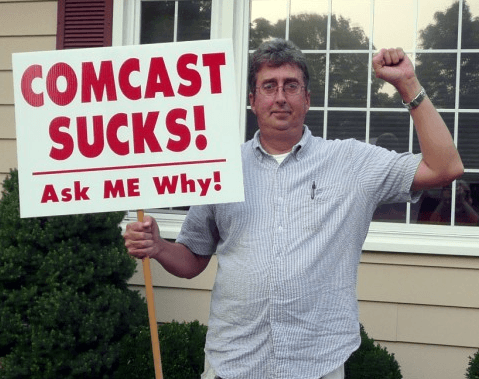 That paragon of virtue Comcast is back in the news again with yet another customer service horror story.
That paragon of virtue Comcast is back in the news again with yet another customer service horror story.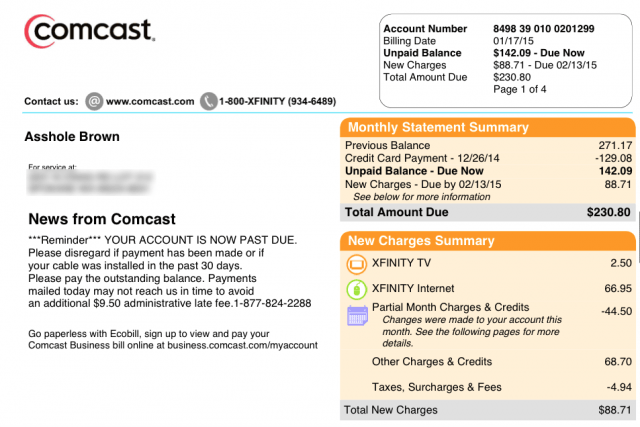
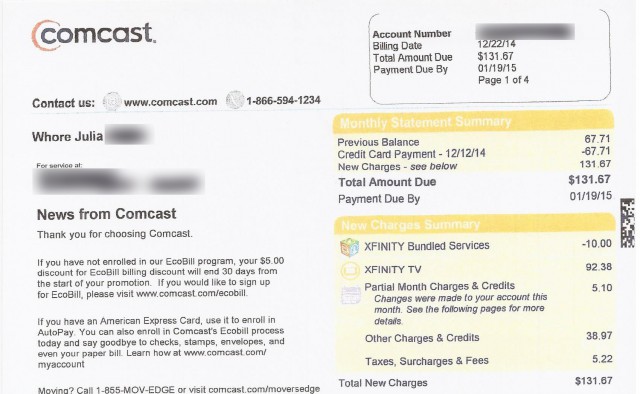

 Let us review:
Let us review:
